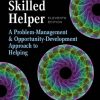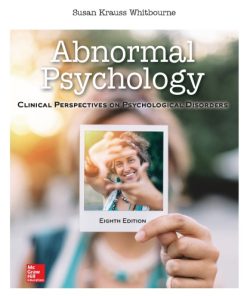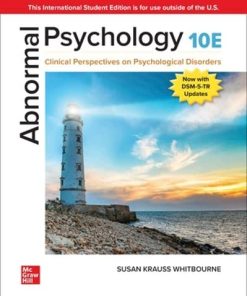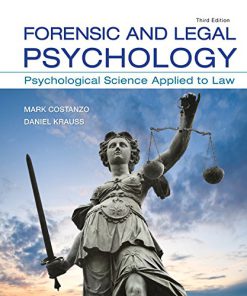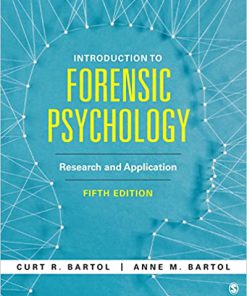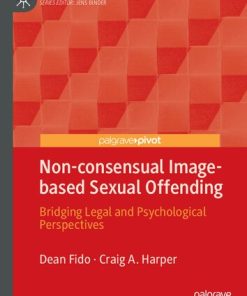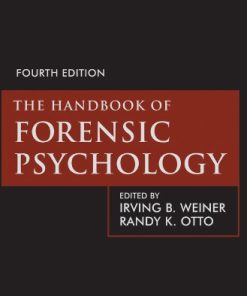Clinical Forensic Psychology: Introductory Perspectives on Offending
$50.00 Original price was: $50.00.$25.00Current price is: $25.00.
Clinical Forensic Psychology: Introductory Perspectives on Offending – Ebook Instant Download/Delivery ISBN(s): 9783030808815,3030808815,9783030808822, 3030808823
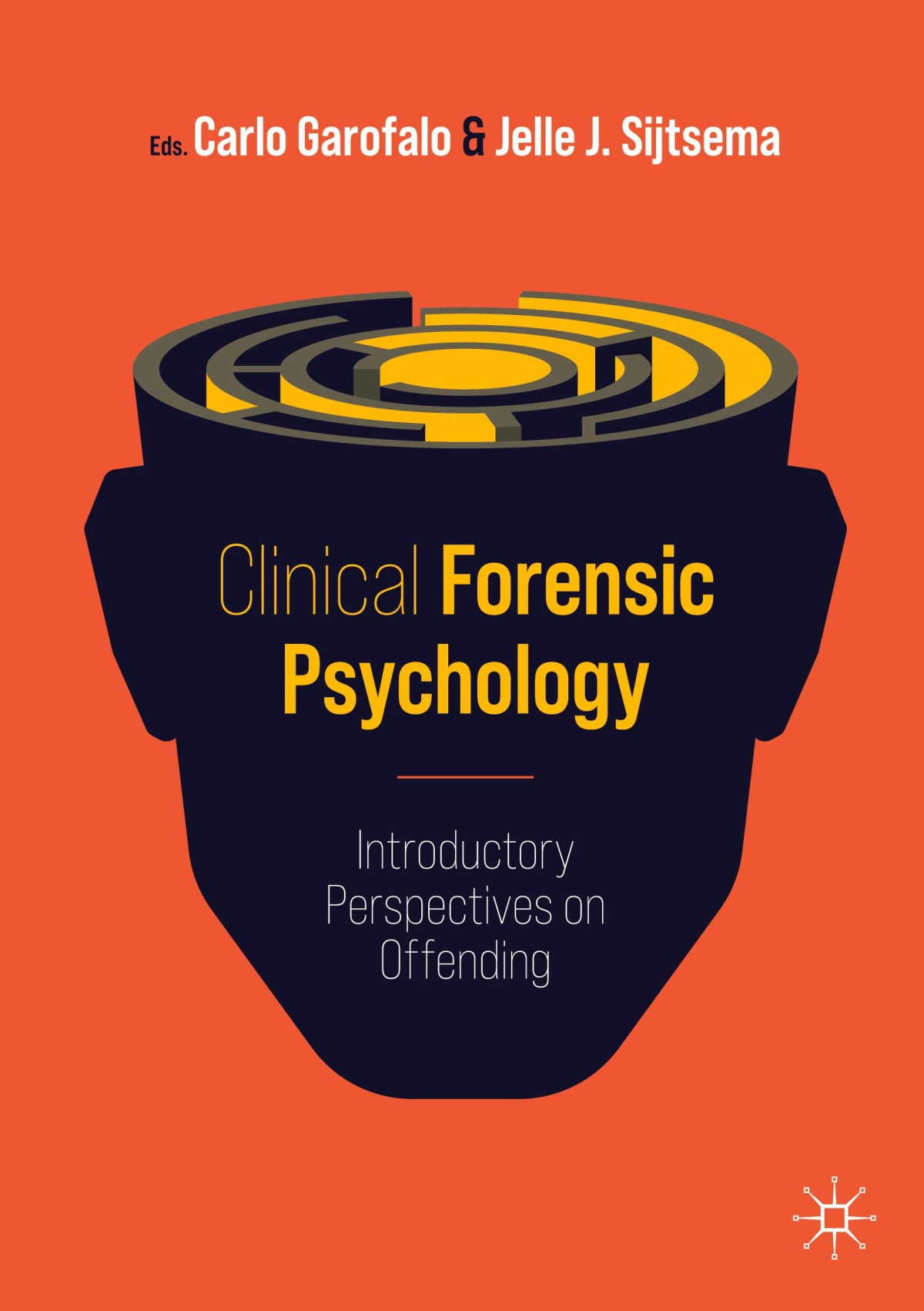
Product detail:
- ISBN 10: 3030808823
- ISBN 13: 9783030808822
- Author: Carlo Garofalo, Jelle J. Sijtsema
This book represents a comprehensive collection of theoretical and empirical work at the nexus of clinical and forensic psychology written by world-renowned experts in the field. It is among the first books in the field to focus entirely on clinical psychological science applied to the understanding and treatment of offending. Part I addresses the main theoretical and clinical models used to explain and predict antisocial behavior, spanning biological, cognitive, experimental, individual differences, and interpersonal perspectives. Part II focuses on forms of psychopathology associated with an increased tendency to offend, with the emphasis on describing the clinical constructs most relevant for forensic psychology. Each chapter describes the clinical characteristics of one form of psychopathology, their assessment, their links with antisocial behavior, and treatment considerations. Part III focuses on different types of offense or offender groups asstarting points. This perspective has relevance since many criminal justice and forensic mental health systems allocate offenders to interventions based on their index offense (or history of offenses). Finally, Part IV addresses the application of clinical psychology in the service of assessment and treatment in forensic settings. It includes the state of the art on diagnostic and risk assessment, as well as both widely used and recently developed interventions. This book is an excellent resource for students at both Bachelor’s and Master’s level, while also representing a comprehensive handbook for experienced researchers and practitioners.
Table of contents:
- 1. History of Forensic Psychology
- Part I. Underpinnings of Deviant Behavior
- 2. Antisocial Behavior Prevention: Toward a Developmental Biopsychosocial Perspective
- 3. Cardiovascular Psychophysiology and Antisocial Behavior
- 4. Moral-Cognitive Delay and Distortions
- 5. Emotion and Emotion Regulation
- 6. Basic Personality and Deviant Behavior
- 7. Callous-Unemotional Traits and Empathy
- 8. Narratives Roles of Criminal Actions
- 9. Attachment Theory and Offending
- 10. Influences of Peer Relationships and Romantic Partners on Antisocial Behavior
- Part II. Psychopathology and Deviant Behavior
- 11. Antisocial Personality Disorder
- 12. Borderline Personality Disorder Among Justice-Involved Populations
- 13. Narcissistic Personality Disorder and Deviant Behavior
- 14. Schizophrenia Spectrum, Other Psychotic Disorders and Violence
- 15. Psychopathy
- 16. Attention-Deficit/Hyperactivity Disorder (ADHD) and Offending
- 17. Substance Use, Abuse, and Disorder Within Forensic Psychiatry
- 18. Offenders with Intellectual and Developmental Disabilities
- Part III. Offending Behaviors
- 19. Forms and Functions of Aggression
- 20. Juvenile Offenders
- 21. Adult Perpetrated Firesetting
- 22. Adult Male Contact Sexual Offenders: Challenges in Classification and Theoretical Perspectives
- 23. Homicide and Mental Disorder
- 24. Domestic Violence: Intimate Partner Violence, Child maltreatment, and Co-Occurrence
- Part IV. Risk Assessment and Treatment
- 25. Violence Risk Assessment: Research and Practice
- 26. Using the MMPI-3 in Forensic Psychological Assessments
- 27. The Good Lives Model: A Strength-Based Approach to Rehabilitating Offenders
- 28. Culpability and Accountability: The Insanity Defense
- 29. Common Psychological Treatments Used to Address Criminal Behavior
- 30. Forensic Schema Therapy and SafePath: Individual- and Milieu-Therapy Approaches for Complex Personality Disorders and Externalizing Behavior Problems
- 31. Ethical Issues in Forensic Psychology
People also search:
You may also like…
Psychology - Psychological Disorders
LooseLeaf for Abnormal Psychology: Clinical Perspectives on Psychological Disorders 8th Edition
History & Research
Psychology - Clinical Psychology
Uncategorized
Uncategorized
New Perspectives on Computer Concepts 2018: Introductory 20th Edition – Ebook PDF Version
Politics & Philosophy - Social Sciences
Computers - Operating Systems
New Perspectives on Computer Concepts 2018: Introductory 20th Edition June Jamrich Parsons



